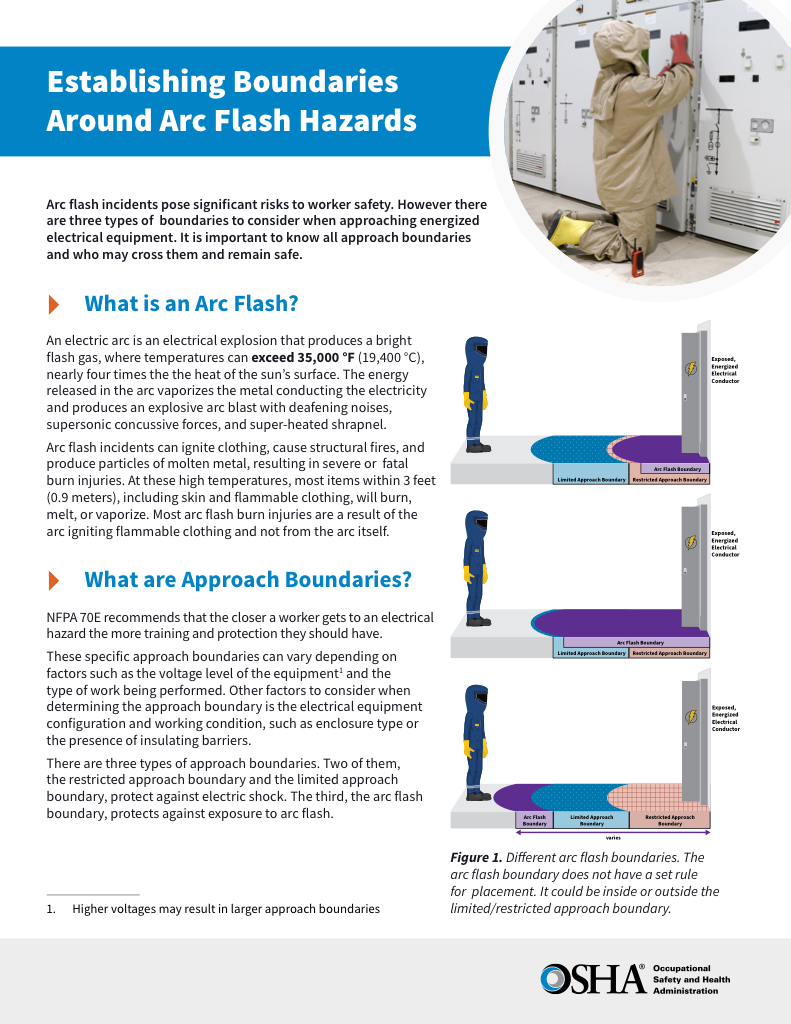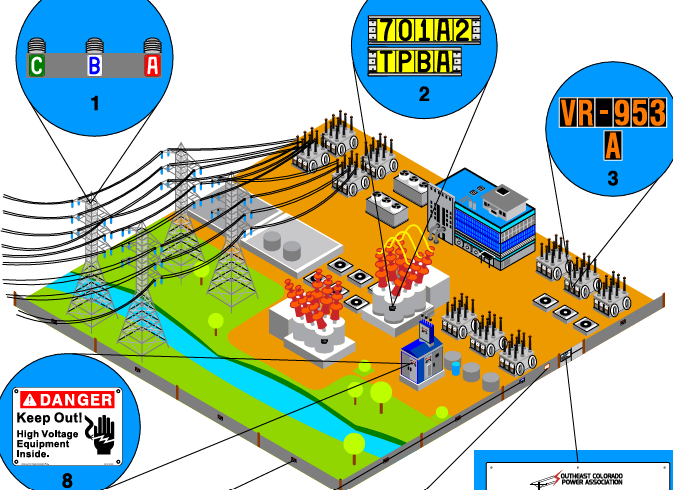Arc Flash Breaker: The Ultimate Electrical Safety Solution
By R.W. Hurst, Editor
CSA Z462 Arc Flash Training - Electrical Safety Essentials
Our customized live online or in‑person group training can be delivered to your staff at your location.

- Live Online
- 6 hours Instructor-led
- Group Training Available
Download Our OSHA 4474 Fact Sheet – Establishing Boundaries Around Arc Flash Hazards

- Understand the difference between arc flash and electric shock boundaries
- Learn who may cross each boundary and under what conditions
- Apply voltage-based rules for safer approach distances
Arc flash breaker, also known as an arc fault circuit interrupter (AFCI), detects dangerous electrical arcs and de-energizes the circuit to prevent fires. Unlike a standard breaker, it provides enhanced protection against arc faults in residential and commercial systems.
Quick Definition: Arc Flash Breaker
-
✅ Arc flash breaker: A specialized circuit breaker designed to detect high-energy electrical arcs and rapidly isolate faulted equipment.
-
✅ Enhanced protection: Interrupts arc faults faster than standard breakers, reducing incident energy and protecting workers.
-
✅ Industrial use: Deployed in switchgear, MCCs, and panelboards to meet NFPA 70E and IEEE 1584 safety standards.
An arc flash breaker is a specially designed arc fault circuit breaker that helps reduce the risk of arc flash(AF) incidents by quickly detecting faults and interrupting current flow before dangerous energy levels are reached. These breakers are critical in enhancing electrical safety by limiting incident energy and protecting both personnel and equipment in high-risk environments. The electric discharge flash breaker is one innovative technology that has significantly improved safety measures in the realm of industrial power systems. This advanced device helps protect personnel and property from the hazards of AF incidents. Understanding arc flash protection is essential for maintaining electrical safety and minimizing risks.
Request a Free Training Quotation
How Does an AF Breaker Help Prevent AF Incidents in Electrical Systems?
AF breakers, particularly AF circuit breakers, are designed to detect electrical discharges that could result in hazardous incidents. When an AF is detected, these breakers immediately de-energize the circuit, preventing further damage. An AF breaker is particularly effective in monitoring branch circuits supplying outlets in areas such as family rooms, dining rooms, living rooms, parlours, libraries, dens, recreation rooms, closets, and hallways. Quickly addressing conditions prevents short circuits and the potential for electrical fires. For general electrical safety tips and guidelines, be sure to check out our comprehensive resources.
Electricity Today T&D Magazine Subscribe for FREE

- Timely insights from industry experts
- Practical solutions T&D engineers
- Free access to every issue
What Is the Difference Between a Regular Circuit Breaker and an AF Breaker?
A standard circuit breaker is primarily designed to protect against overloads and short circuits by tripping when the current exceeds a certain threshold. However, it does not detect the small electric discharges that can occur in damaged wiring, which may ultimately lead to electrical fires.
In contrast, an AF circuit breaker is designed to detect these smaller electric discharges that would otherwise go unnoticed by a standard circuit breaker. These devices monitor both series and parallel conditions, providing enhanced protection by interrupting the arc fault circuit interrupters before the fault can escalate. This makes AF circuit interrupters, AFCIS, essential for residential electrical systems, especially in areas where electrical fires are a common risk. Electrical breakers play a vital role in protecting systems from faults. Learn more in our article on circuit breaker types.
Do You Select the Right AF Breaker for Your Electrical System?
Selecting the right AF breaker depends on the type of electrical system you are working with and the level of protection required. In residential installations, combination-type AFCIS are typically used. These breakers offer protection from both series and parallel electric discharge faults, which can occur in aging or damaged wiring. The National Electrical Code (NEC) requires AFCIS to be installed in various dwelling unit areas, including family rooms, living rooms, dining rooms, and more.
In addition to AFCIS, a GFCI (ground fault circuit interrupter) may also be installed in locations such as bathrooms to protect against electric shock. A GFCI works by detecting current leakage to the ground and cutting off the power, providing a different form of protection than an AFCI circuit breaker.
What Role Does An AF Breaker Play in Enhancing Workplace Safety?
AF breakers, including AF circuit interrupters, enhance workplace safety by preventing electrical fires and other incidents. In industrial settings, they help protect workers by detecting and interrupting dangerous arcing electric discharges that could lead to severe injuries or damage to equipment. Regular maintenance and installation of these breakers, according to the National Electrical Code (NEC) and National Fire Protection Association standards, ensure a safer working environment. Employers should conduct regular electrical safety audits and electric discharge flash studies to identify potential hazards and implement the correct safety measures, including AFCIs.
How Does An AF Breaker Interact with Other Protective Devices?
AF breakers, particularly electric discharge fault circuit interrupters, often work in conjunction with other protective devices in an electrical system. In residential settings, AFCIs and ground fault circuit interrupters (GFCIs) provide comprehensive protection against both electrical fires and shock hazards. While AFCIs prevent fires by detecting arcing conditions, GFCIs protect people from electrical shock by sensing current leakage to the ground. Click here to learn how to prevent an arc flash from happening in your work environment, follow essential safety protocols and precautions.
In industrial applications, AF breakers can be integrated with overcurrent protective devices and personal protective equipment (PPE) to create a layered approach to safety. By detecting and responding to electrical faults early, AF breakers prevent hazardous incidents, thereby ensuring the protection of both equipment and personnel.
AF breakers are a crucial component of modern electrical systems, offering advanced protection against electric discharge faults that could otherwise lead to hazardous electrical fires. Unlike standard arc fault circuit breakers, AFCIs detect smaller electric discharges and de-energize circuits before a fault can escalate. By following National Electrical Code guidelines and incorporating AFCIs into electrical systems, homes and workplaces can significantly reduce the risks associated with electrical faults. In conjunction with other protective devices, whether in a home or an industrial facility, these breakers create a safer and more reliable electrical system.
FREE EF Electrical Training Catalog
Download our FREE Electrical Training Catalog and explore a full range of expert-led electrical training courses.

- Live online and in-person courses available
- Real-time instruction with Q&A from industry experts
- Flexible scheduling for your convenience
For more information on identifying and addressing electrical safety in the workplace, visit our dedicated page.
Related Articles:







